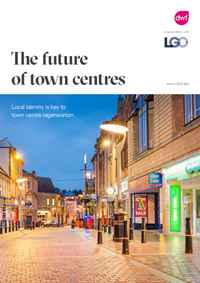Whilst each vision is different (very much a product of each location’s demographics, history and physical geography) and there is clearly no desire to promote an identical town centre across the UK, all local authorities looking to intervene will need to rely on the right public law powers, ensure that any process and procedural requirements are satisfied, and comply with any regulatory requirements (eg. State aid, fiduciary duty, procurement and planning).
The good news is that the current legal framework allows and promotes active public sector intervention to regenerate town centres and the High Street (remove). For example, Local Authorities have the power to:
(i) consult with tax payers, business owners, service users and other community groups to set a strategy for town centre regeneration and High Street renewal (section 3 of the Local Government Act 1999);
(ii) prudentially borrow and invest in their areas (sections 1 and 12 of the Local Government Act 2003);
(iii) acquire and dispose of land to place shape an area (sections 120 and 123 of the Local Government Act 1972);
(iv) do anything a person may do; including acting for a commercial purpose (section 1 of the Localism Act 2011);
(v) loan monies and provide grant funding (significant funds are likely to come on stream over the next few years through the distribution of for example the High Street Fund and the UK Shared Prosperity Fund) to the private sector to deliver determined outputs; and
(vi) set a planning strategy that supports regeneration and development.
As legal advisers to many public sector bodies, DWF is seeing all of the above powers being used on a daily basis by our clients across the UK to intervene and deliver successful regeneration, create or safeguard jobs and provide commercial income (please see our Commercialisation report with the LGC released in January 2019 for an assessment of what local authorities are doing across the UK to generate income). We find that it is important to listen carefully to our clients' vision before suggesting how it can be delivered, both in accordance with the law and internal governance procedures.
DWF's public sector team in partnership with Local Government Chronicle (LGC), conducted a roundtable discussion to establish how retailers, institutional investors and local government can come together to regenerate town centres for the 21st century. Download your copy of our report here >
Retail – the backbone to regeneration
Investors are facing rising vacant and non-income producing assets
Transport revolution is an opportunity for towns and cities to differentiate their offering














